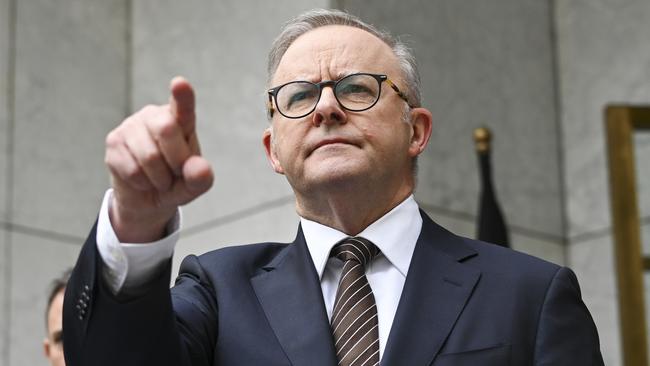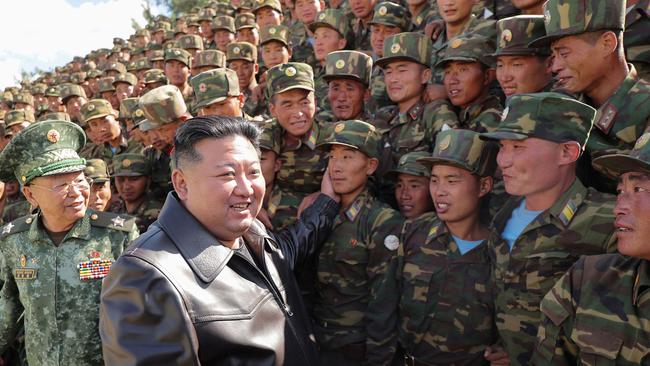
The Online Safety Amendment (Social Media Minimum Age) bill has not quite been enacted yet but it is only a matter of time. The legislation will have to go back to the House of Representatives to vote on Senate amendments but these will be waved through on the voices. The government proposed the legislation, the opposition supports it and the crossbenchers can whistle Dixie.
Are we the first? Not really. Iran has blocked 70 per cent of the internet. In 2021, Syria banned Wikipedia. Russia has banned Facebook and Instagram. The People’s Republic of China has banned Gmail among many other social media platforms.
The DPRK has effectively banned the internet to all with the exception of a few senior Korean Workers’ Party officials. The ban in North Korea has led to amusing scenes on the Ukrainian front with DPRK soldiers having access to smartphones for the first time. Many of the troops, press ganged into the conflict at the behest of Kim Jong Un and Vladimir Putin, have inadvertently put GPS targets on their backs, leering at the western decadence on small screens, only to find themselves at the pointy end of a HIMARS missile or drone attacks. Talk about the dangers of social media.

Earlier this year, Iran’s Supreme leader, Ayatollah Khamanei ordered a ban on virtual private networks (VPNs). Obviously all of these state prohibitions are directed at the entire citizenry, not just children. Nevertheless, it is worthwhile looking at the type of regimes who casually ban their citizens, any citizens from access to the internet.
If the government’s justification for the bill were to be realised, Australia’s children will be as free as Syria’s children to get out in the fresh air and play. Charming scenes are set to abound. Street cricket with an old tea chest for stumps. Where is Australia’s Norman Rockwell when he is needed? Fetch the Travel Scrabble.
In the here and now, a majority of Australians and parents in particular support the ban. In the esoteric world of polling, 77 per cent of respondents favoured the ban in a YouGov poll last week, up from 61 per cent in a survey taken earlier this year. Further, 87 per cent support tougher penalties on social media companies. But isn’t this bill a form of parenting by proxy, an implicit abrogation of parental responsibility with a swift handpass to the government?
It reminds me of a Simpsons episode where Bart has wreaked havoc on a building that turns out to be Springfield’s bordello. The proprietor takes Bart back to the Simpson residence to find Homer wearing only a paper shopping bag (Marge is away).
“I’m not going to press charges but I assume you’re going to punish him?” the bordello owner asks.
“Yeah, I appreciate the suggestion, lady, but he hates that, and I gotta live with him.”
There we are. Parents are genuinely overwhelmed by the force and power of social media but rather than impose their own rules, they are much happier leaving it to government. They see their teenage children doom scrolling Instagram or some other ghastly platform for hours on end, sullen and inattentive but rather than imposing some reasonable rules in the home and elsewhere, they turn to the government.
Similarly, the recipient of the handpass is left dripping in self-importance. We never hear from government on the limits of government, an entirely sensible and accurate message that there is only so much they can do in what amounts to a whole of society problem. Therein lies the risk for this government and for those that come after it. They have invoked the nonsense that government can solve all of society’s ills with a stroke of the legislative hand. They have set themselves up as the vehicle for a universal panacea that will see them failing to meet self-imposed expectations.
The government could play a supportive role. Educate, inform and advise. Get a website together. Put posters up in the post office. Set up a hotline but no, they know better.
It is entirely possible that a vast majority of Australians do support a social media ban but do they appreciate the bill’s intricacies? Why is Facebook on the naughty list while YouTube with its enormous library of videos, some disturbingly ugly, is free to hurl dodgy content at kids? And why are teenagers permitted to use Facebook Messenger but not Facebook? It gets seriously silly when the government tells kids that in order to access Facebook Messenger they must first have a Facebook account and then effectively delete it.
The most obvious shortcoming to this bill is that teenagers might be sullen and inattentive but they are also incredibly resourceful, and generally speaking know more about technology than the adults in the room. They will have the skills to get around the laws, maybe by hiving off dad’s VPN which they set up for dad in the first place. Shall we go down the Iranian pathway and ban VPNs altogether?
In the rush to be first, the government is too busy congratulating itself to ponder how parents might feel in a year’s time when the effectiveness of the bill is put to a real test.
The government thinks it is onto a winner and the Opposition agrees. Any occasion where a segment of society is subject to a prohibition that five years ago wasn’t in place should be cause for concern and reflection on the fundamental basis that governments generally don’t solve social problems well and in most cases make matters worse.






Australia is the talk of the globe today with articles running across too many foreign news agencies to count, reporting on the nation’s shiny new social media ban for those aged under 16 years of age. From Russia to the UK, from the US to Spain and beyond, it has been hailed as a first anywhere around the world.